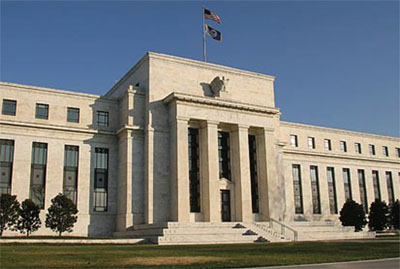NEW YORK (TIP): Nearly all of the nation’s largest banks won permission to return cash to shareholders Thursday, March 14 but the Federal Reserve imposed conditions on Goldman Sachs and JPMorgan Chase’s plans to raise dividends or buy back shares. Of the 18 big banks that the Fed reviewed, only auto lender Ally Financial and regional bank BB&T were denied permission to boost their payouts to shareholders.
The 18 banks control 70% of the nation’s banking assets. BB&T said it would resubmit its plan, and noted that it has the strongest capital base of any traditional bank in the Fed’s stress tests. It raised its dividend 15% during this quarter. Goldman Sachs also said it would resubmit its plan.
The Fed’s actions are a sign that the 2008 financial crisis is receding enough that banks can lend more freely and still return money to their shareholders, said Michael Rose, an analyst at brokerage firm Raymond James. “This not only signals that banks are healthier, but also that they are open for business,” Rose said. “The banks are highly capitalized, and earnings have rebounded.” Goldman and JPMorgan Chase, two of Wall Street’s biggest and most powerful banks, won approval subject to the requirement that they resubmit their plans by Sept 30. That condition is meant to force the banks to better demonstrate that they can forecast what will happen to them in the event of another severe recession, said a senior Fed official who would not allow his name to be used.
Both banks appeared to have enough capital to meet the central bank’s standards, according to results released by the Fed. Shares of both banks dropped about 2.5% after the news was announced, but the dispute won’t prevent dividend increases, said Anthony Polini, another Raymond James analyst who follows JPMorgan. “The outcome shows that regulators overreacted, and shows what it’s like to be overregulated,” Polini said. “This isn’t going to slow them down.” Regulators want Goldman and Morgan to prove they can manage the risks posed by proprietary trading, or the buying and selling of securities the banks own themselves, rather than trading for clients, Polini said.
The $6.2 billion loss that JPMorgan took last year on derivatives trades, which was the subject of a scathing Congressional staff report released Thursday, probably made the Fed more cautious, he said. The move immediately produced some signs of bigger returns to bank shareholders. Bank of America said it will buy back $5 billion of common stock and redeem $5.5 billion of preferred shares. JPMorgan will raise its quarterly dividend to 38 cents a share from 30 cents and buy back $6 billion of stock. Citigroup will buy back $1.2 billion of common stock. The Fed said banks have doubled their capital since late 2008, in part by slashing dividends. The banks paid 19% of their profits last year as dividends, about half of what they paid before the financial crisis.
